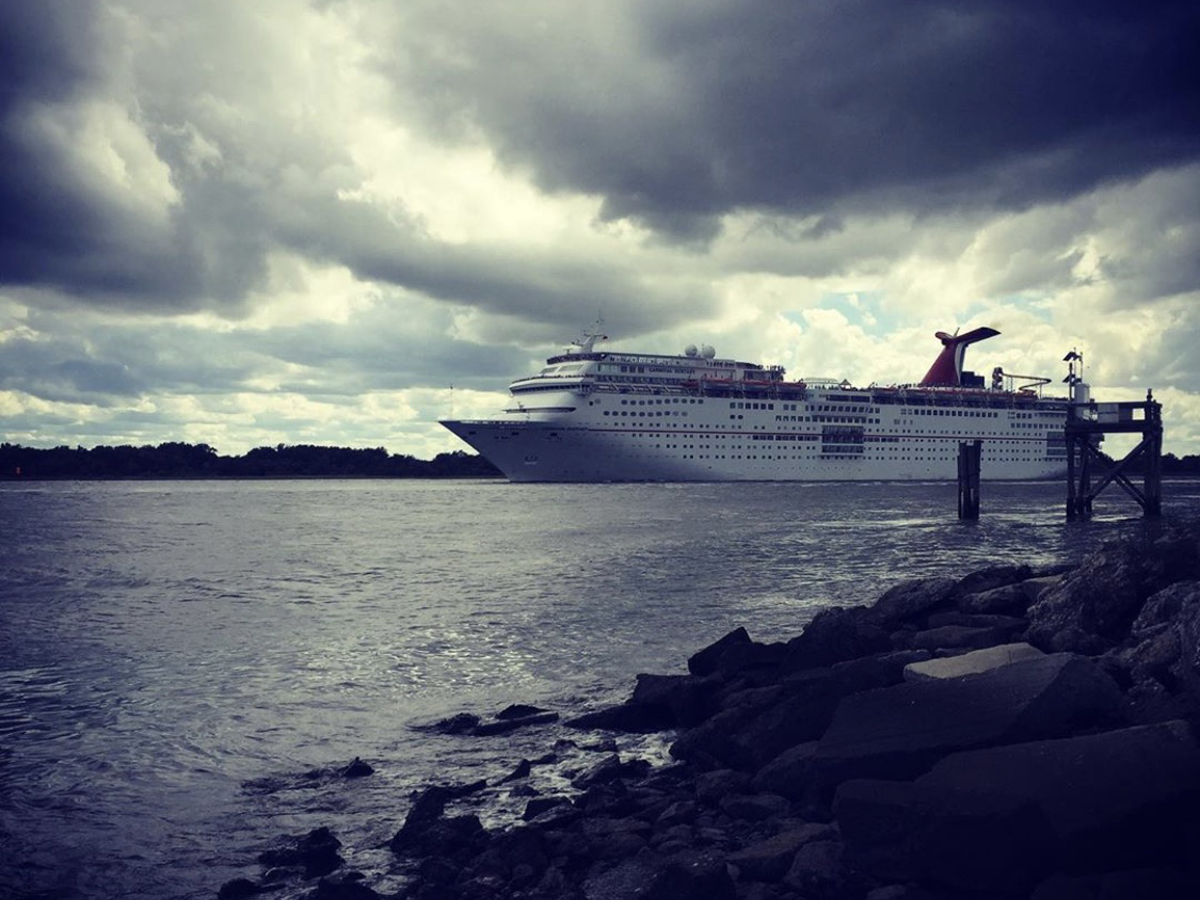Table Of Content
- How do cruise lines handle the death of crew members onboard?
- What Are the Protocols Surrounding a Death?
- Do Cruise Ships Have Morgues Onboard? (Why & where?)
- Are there any religious or cultural restrictions on the handling of a deceased passenger’s body?
- Handling Passenger Death
- Cheaper than a Care Home or Hospice
- Crew members don’t just work hard — they often work every day.

Ships with a Deck 13 typically use it for public areas, not cabins. Many cruise lines, including Disney Cruise Lines, Carnival and Royal Caribbean, offer weddings and wedding renewals aboard the ship or at scenic tropical locations. We're lucky in Florida, home to some of the world's busiest cruise ports including PortMiami, Port Canaveral, Port Everglades, Port Tampa Bay, JAXPORT, and Port of Palm Beach. There is also a port in Key West, but this is mainly used for cruise ship calls rather than a homeport.
How do cruise lines handle the death of crew members onboard?
If a passenger dies while on a shore excursion, shore excursion protocols are followed. The cruise line will assist with funeral arrangements, but the responsibility falls on the family. The ship’s morgue may be used until the ship reaches a suitable port. To participate in the ash scattering ceremony, families must book the cruise as normal and bring the urn containing their loved one’s ashes.
What Are the Protocols Surrounding a Death?
The disturbing reason cruise ship employees throw ‘free ice cream parties’ on board - 7NEWS
The disturbing reason cruise ship employees throw ‘free ice cream parties’ on board.
Posted: Thu, 29 Feb 2024 08:00:00 GMT [source]
Air Force as an Arabic linguist, Sophia now explores the world as a freelance writer. She funds her four-year (and counting!) cruise adventure using points and miles. Sophia’s travel expertise comes from her time as a reporter for The Points Guy, featured in Forbes, Business Insider, and The Balance. When not traveling, she enjoys relaxing in Priority Pass lounges with tea and battling slow Wi-Fi. Join her as she shares cruise insights and explores the world, one voyage at a time. Cruises may be synonymous with luxury and leisure, but it’s important to remember that tragedies can occur anywhere, even in the middle of the ocean.
Do Cruise Ships Have Morgues Onboard? (Why & where?)
There are millions of cruise passengers every year, so it’s sadly inevitable that a small number will pass away while on their voyage. Although cruise lines make efforts to provide appropriate morgue facilities, there have been rare instances where the morgue was not big enough to accommodate all deceased passengers. Cruise lines understand the emotional toll that a death onboard can have on family members and friends of the deceased.
While a morgue may seem like a grim necessity, it’s a vital facility that allows cruise lines to operate in a safe and lawful manner. Cruise ships have carefully planned procedures to handle these sensitive situations with discretion and respect. It’s important to be prepared for all eventualities when planning your vacation, and knowing what to do in the event of a death is one of them. Sometimes, the ship may be required to question passengers as witnesses. The U.S Centers for Disease Control and Prevention (CDC) will also need to be informed when the cruise ship is at a US homeport. The location of the morgue is not usually shown on the ship’s deck plans.
Handling Passenger Death
A morgue is a room or building where dead people’s bodies are kept before burial or cremation. Larger vessels may have space for up to 6 bodies, maybe more in some in cases, but to need the use of them all would be a rare occurrence. The meetings are usually held in a quiet place like the library, where guests can feel comfortable and maintain their anonymity.
Cheaper than a Care Home or Hospice
Celebrity Cruises improperly stored dead body in cruise ship’s cooler, instead of morgue, lawsuit claims - CNN
Celebrity Cruises improperly stored dead body in cruise ship’s cooler, instead of morgue, lawsuit claims.
Posted: Sat, 22 Apr 2023 07:00:00 GMT [source]
Approximately 200 passengers total die while on a cruise each year, considering over 20 million cruise passengers worldwide. The vast majority of these deaths are due to natural causes, often heart attacks or other medical emergencies. Though a tragedy, the ship’s staff is trained to respond sensitively and efficiently. Proper facilities like the onboard morgue and established protocols allow the cruise line to make necessary arrangements while still continuing voyage. For storage, there are stainless steel refrigerated compartments or pull-out cold drawers to contain bodies. Basic embalming tools, cleaning supplies, body bags, and personal protective equipment are also kept for handling deceased persons.

If it’s your first sailing, your cabin steward will still get your photo and be told you’re a first-time passenger. In addition to meeting legal requirements, having an onboard morgue helps maintain a level of discretion for passengers. Ceremony locations are carefully chosen to ensure that the ashes are scattered in a place that’s significant to the family member being remembered.
Crew members don’t just work hard — they often work every day.
While most deaths on cruise ships occur due to natural causes, some are caused by onboard injuries, suicide, or even foul play. In the event of foul play, the FBI or the appropriate investigative team will be called to examine the situation and interview all parties involved. The suspects may be held in a small brig on the ship until local authorities arrive. In most cases, the body will be removed from the cruise ship in the next major port of call. This will depend on factors like local regulations, the vacation itinerary, and the ship and cruise line’s home country.
When a cruise ship passenger dies, the staff places the body in the onboard morgue until the ship reaches a suitable port to disembark it, where it will be flown home. The cruise line will inform the next of kin if they’re not already sailing with the passenger. We’ll examine the regulations that mandate them, where they are typically located, how many bodies they can hold, and what happens when someone passes away at sea. It’s typically estimated that 200 people a year die on cruise ships every year. However, the real figure is likely to be higher, especially if including deaths that occur at ports of call. If someone dies on a cruise ship the body is placed in a body bag and stored in an onboard morgue that’s usually discreetly located on the lower decks.
For example, some cultures have specific funeral customs or rituals that must be followed, which may not be possible on board a ship. In these cases, the cruise line will work with the family to find a suitable solution, such as disembarking the body at the next port or arranging for repatriation. It's unlikely that this type of morbid thinking is top-of-mind for anyone excited about an upcoming cruise vacation. These are the questions that pop into your head while you're in the shower getting ready for work, chatting over drinks with friends or lying awake in bed at night pondering the meaning of life. Their job is to assist with details of repatriating the deceased passenger and contacting a funeral home. They help families work with the local authorities, deal with insurance, and make travel arrangements.
It is important to note that the responsibility for further procedures, such as determining the cause of death or arranging for a funeral, usually falls under the jurisdiction of local authorities. According to a study published in the International Journal of Travel Medicine and Global Health, there were 623 reported deaths on cruise ships between 2000 and 2019. This statistic may come as a surprise, as the cruise lines typically strive to avoid negative publicity surrounding such incidents.
Cruise ship vacations are meant to be a time for fun and relaxation, however, they can sometimes be met with a medley of worst-case scenarios. A 2018 Cruise Lines International Association (CLIA) report found that 50% of cruise ship passengers were over the age of 50, and almost a third of that 50% were over 70 years old. Yes, you read that correctly – cruise ships do indeed have morgues, and the reasons behind this morbid necessity might surprise you. They gathered data from 78 ocean cruise lines worldwide to analyze passenger and crew mortality from 2000 to 2019.
Cruise ships are not just equipped with morgues; they also have medical facilities staffed by qualified healthcare professionals. Cruise ship morgues are equipped with facilities to preserve bodies until they can be disembarked at the next port of call. Operation Bright Star is a code some cruise lines use to alert the medical team that a passenger has an urgent medical emergency, such as a stroke, seizure, or heart attack. Religious customs and cultural traditions may dictate the handling of a deceased passenger’s body.

No comments:
Post a Comment